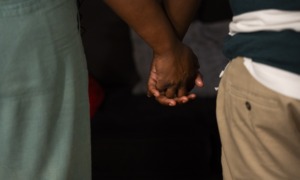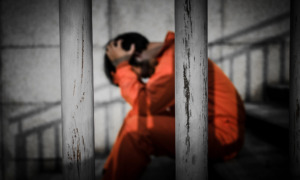First, the Weekly Notes from last week:
It snowed. And since then: It snowed. All the time, every day.
JJ Today and every other office schmuck fled the premises like slugs escaping a menacing salt shaker. So that’s what happened. Consequently, not a whole lot was going on vis-à-vis the federal government (closed all week here, until today) and juvenile justice (or anything else for that matter). On to this week’s notes!
***The Bureau of Justice Assistance announced funding available for justice-mental health collaboration projects that would focus on juveniles or adults diagnosed with mental illness, and facing charges for a misdemeanor or nonviolent offense. There will be grant awards for planning ($50,000/one year), implementation ($250,000/two years) and expansion ($200,000/two years).
Deadline for applications is April 8. Read the solicitation here.
***The deadline draws nigh for states to comply with the Sex Offender Registration Notification Act (SORNA), which is a major part of the Adam Walsh Act. By July 27, states have to pass a law that puts them in substantial compliance with the requirements of the act, or face the loss of 10 percent of its Byrne Grant money from the Justice Department.
States may be getting some more breathing room. Attorney General Eric Holder issued a blanket extension of the SORNA deadline last year, and we heard from some close watchers of Walsh Act activities that this year he is allowing states to pursue individually another one-year extension. But the communications staff at Justice is on snow-ternity leave, so we’ll follow up on that next week.
SORNA compliance is a major issue for state juvenile justice systems. States are asked to include at least the most serious juvenile offenders on the registry, but are also given carte blanche to include juveniles guilty of lesser sex offenses. That, despite a generally accepted belief among mental health professionals that juvenile sex offenders are far more capable of rehabilitation than adults and, in many cases, are victims of sexual abuse themselves.
The number of states in compliance today is one: Ohio. But JJ Today has noticed recent chatter and activity about juveniles on the registry in more than one corner of the land.
Maryland: A bill to comply with the Walsh Act was put in the hopper by none other than Gov. Martin O’Malley (D), which essentially makes its passage a done deal. O’Malley’s bill would require juveniles to register if they are convicted in adult court, or if they are over 13 and are adjudicated for a “serious sexual offense.”
That last line is where things can get disproportionately tough on juvenile offenders. Serious offenders in Maryland include those “convicted of first-degree rape/attempt; second-degree rape/attempt; first-degree sexual offense/attempt; certain second- and third- degree sexual offenses; certain sexual abuse of a minor,” according to O’Malley’s own press release about his bill. And since a large percentage of juvenile sex offenses are committed against other minors, it opens the door to inclusion of most juvenile offenders.
Michigan: Michigan Messenger reporter David Garcia reported this week that a staggering 8 percent of the state’s registered sex offenders are juveniles, which the Messenger discovered through a public information request. The state has 3,563 juveniles on the registry, 145 of whom are between 9 and 12).
The vast majority of those juveniles are on a version of the registry that is viewable only by law enforcement. But if the state decides to comply with the Walsh Act, it will have to make information about juvenile offenders available to the public.
Tennessee: State Rep. Debra Maggart (R) is leading the charge to include certain juvenile sex offenders over the age of 13 on the state registry.
Arizona: A bill approved by an Arizona Senate panel this week would make “sexting” a misdemeanor in the state, reports Alia Rau of the Arizona Republic. As a result, any teen who was prosecuted successfully in such a case would land on the sex offender registry for life. Sexting, for the culturally behind, entails someone sending or receiving a sexually explicit video or audio file by phone or Internet. Since it’s often consensual, the charge is not in that sphere of violent sexual offenses for which the feds would require a state to list juveniles on the registry.
It’s going to be an interesting game of chicken between states and Justice on this. How hard a line will Justice draw on the notion of “substantial compliance” with the act? Will the agency actually dock states law enforcement money in the middle of a catastrophic year for state budgets, which 2011 is sure to be?
Regardless, it has become clear that the cost of implementing SORNA will be greater than the hit a state would take by losing 10 percent of its Byrne grants. Check out the cost-benefit analyses already done by some states, courtesy of the National Council of State Legislatures.
Our question, and feel free to e-mail with thoughts: What is the drawback to the way Michigan does things, with a list of juvenile offenders that can only be seen by police?
***Add one more item to New York’s “to-do” list as it seeks to develop a sensible strategy for dealing with juveniles in general, and particularly the youth in its secure detention and post-adjudication facilities. New York Times reporter Julie Bosman reported yesterday on the lack of full-time psychiatrists overseeing mental health services for the 800 juveniles locked up in state-run facilities. All of the evaluations and treatments are developed by contract psychiatrists. Because of the frequent turnover of those contracts, and the remote location of some N.Y. facilities, youths frequently go weeks between visits.
One thing you can be sure of: New York is not the only state that leans on part-time help to make major decisions about diagnoses and treatment in facilities. On the other hand, a national JJ consultant told us that the mere presence of a full-time psychiatrist does not remotely guarantee a stable and sensible approach to mental health treatment.
***Here are two events to put on the calendar:
— April 7-9, the Center for the Study and Prevention of Violence will hold its annual Blueprints Conference in San Antonio, Texas, at which attendees can learn about all kinds of evidence-based approaches to reducing violence or working with young people outside of locked facilities. Blueprints registration is $250 if you can get it done this week or next, after that it goes up to $350. Click here for a look at the agenda, which includes a keynote speech by Assistant Attorney General Laurie Robinson.
— July 9-15, the Center for Juvenile Justice Reform at Georgetown University will offer the Juvenile Justice and Child Welfare: Multi-System Integration Certificate Program for Public Sector Leaders. The idea is to bring together new and veteran leaders in child welfare and juvenile justice to improve understanding about the many youths who are known to both systems. Applications to the program are due March 24.





























